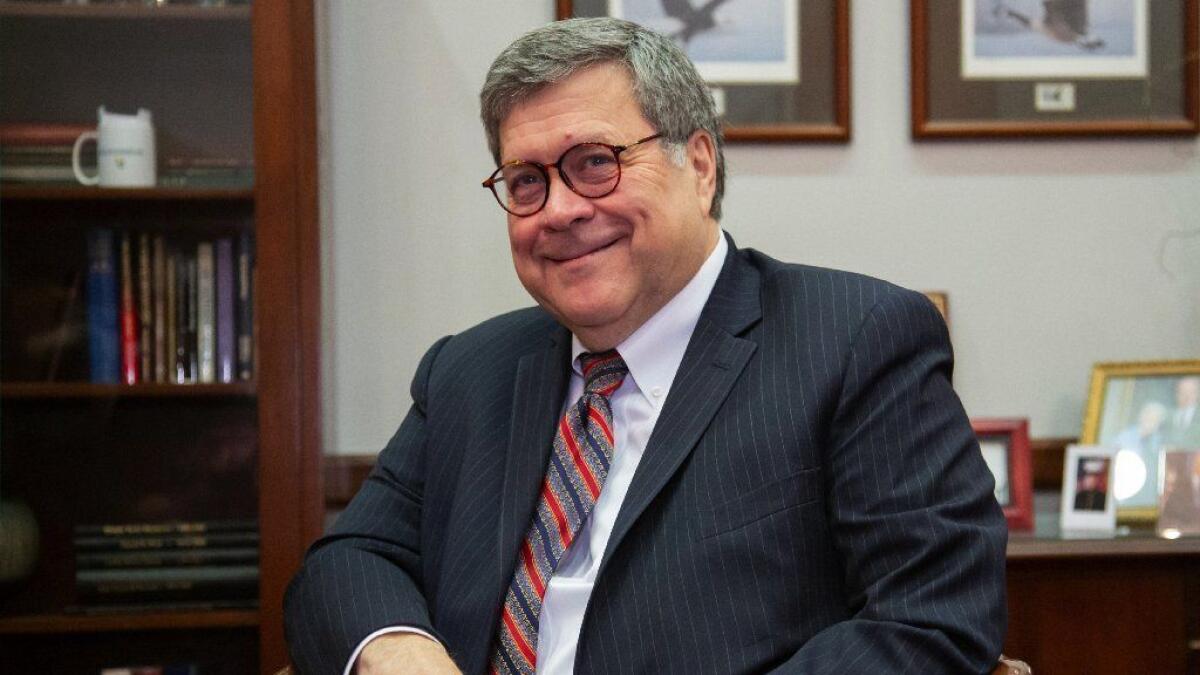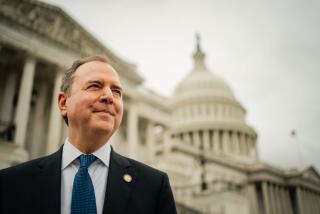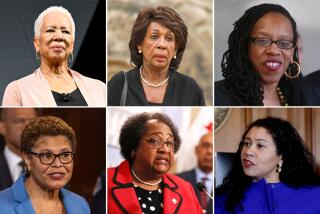William Barr to face tough Senate hearing on attorney general nomination

William Barr, President Trump’s nominee for U.S. attorney general, will face a familiar setting on Tuesday — a Senate confirmation hearing.
It is sure to be the most contentious in the long legal career of the 68-year-old Republican lawyer who served as attorney general for two years under President George H.W. Bush.
Democrats are gearing up to press Barr on a host of issues, including how he would oversee special counsel Robert S. Mueller III’s investigation of Russian interference in the 2016 election and other crimes.
“The big question in my mind is will he leave Mueller alone,” said Sen. Dianne Feinstein (D-Calif.), the ranking Democrat on the Judiciary Committee.
“That means no interference, no budgetary control, no stoppage, nothing,” she told reporters. “That is only going to get answered well in public … The first question is Mueller’s independence.”
Feinstein and other Democrats are also sure to press Barr to explain comments he made in recent months that were critical of Mueller’s inquiry.
Barr has questioned the special counsel’s hiring choices and has expressed skepticism over potential collusion between Trump associates and Moscow during the 2016 campaign.
In a lengthy memo last year to top Justice Department officials, Barr argued that the special counsel’s focus on whether Trump obstructed justice in May 2017 by firing former FBI Director James B. Comey was “fatally misconceived.”
Republicans and those who know Barr say they are confident he will allow Mueller to finish his work and will have an open mind when examining evidence gathered by the special counsel.
“He is an honorable man and very principled,” said George Terwilliger, who was Barr’s deputy attorney general.
“He is extremely logical in his legal analysis and is a very effective advocate … I found him to be very open to disagreement and discussion, and sometimes I would come away he was right, and there were times he came away thinking I was right about things.”
Sen. Lindsey Graham (R-S.C.), chairman of the Judiciary Committee, said Barr has “a very high opinion of Mr. Mueller, and he is committed to seeing Mr. Mueller complete his job.”
“He had absolutely no indication he was going to tell Bob Mueller what to do or how to do it,” Graham told reporters Wednesday after a meeting with Barr.
Graham said Barr assured him that he did not believe Mueller was on a “witch hunt,” as Trump has repeatedly alleged. He added that Barr would “err on the side of transparency” in releasing aspects of the special counsel’s final report.
Since he was appointed in May 2017, Mueller has indicted or charged 33 people, including 25 Russians. Several of Trump’s top former aides and associates — including his national security advisor, his campaign chairman and his longtime personal lawyer — have pleaded guilty or been convicted of felonies, although none directly related to Russian meddling in the election.
If he is confirmed, as expected, Barr would become the nation’s top lawman at a tempestuous time at the Justice Department.
Trump and his allies have denounced the special counsel investigation as well as the department’s refusal to go after the president’s political opponents.
The president has also excoriated the Justice Department for investigating hush payments made by his personal lawyer to two women, including a porn star, who alleged during the campaign that they had previous sexual affairs with the business mogul.
The attorney, Michael Cohen, was sentenced last month to three years in prison after he pleaded guilty to arranging the illicit payments. Cohen also pleaded guilty in a separate deal with Mueller’s office, admitting that he had lied to Congress about his efforts to lock down a Moscow real estate deal on Trump’s behalf.
If confirmed, Barr would take the reins from Matthew Whitaker, whose was named acting attorney general on Nov. 7 minutes after Atty. Gen. Jeff Sessions resigned at Trump’s request.
Possessing a relatively thin resume for the post, Whitaker came under fire for critical comments he made about the Mueller investigation before he joined the Justice Department in October 2017 as Sessions’ chief of staff.
Whitaker has refused to recuse himself despite the recommendation of a career Justice ethics lawyer that he take such a step.
Sessions’ tenure was a rocky one. Irked that his attorney general recused himself from the Russia investigation — Sessions was an early and ardent backer of the Trump campaign — the president often belittled him on social media as “weak” and ineffective.
Deputy Atty. Gen. Rod Rosenstein, who has also drawn Trump’s ire, appointed Mueller and served as the day-to-day supervisor of the special counsel’s work. Rosenstein has indicated to associates he plans to step down when Mueller’s work is largely done.
Mueller will not be the only topic at the confirmation hearing. As attorney general, Barr will be one of the most powerful members of Trump’s Cabinet, exerting influence over the enforcement of laws concerning civil rights, immigration, terrorism and the environment.
Senators are sure to probe Barr on how his earlier tenure in the Justice Department and as a corporate lawyer will influence how he would handle such matters.
The learning curve will not be as steep as for other nominees. Barr served as attorney general from 1991 to 1993 after serving as deputy attorney general and assistant attorney general in charge of the office of legal counsel.
As a top Justice Department official, he was not shy about pushing the envelope of presidential power and wading into contentious issues. He told Bush that he could deploy troops overseas — to Panama and Iraq, for example — without congressional approval.
He advocated for the detainment of Haitians fleeing a bloody coup at the U.S. Navy base in Guantanamo Bay, Cuba, and sought to stem an influx of asylum seekers reaching the United States by sending immigration officers overseas to vet passengers before they got on airliners.
One of his most controversial actions involved urging Bush to pardon key figures in the Iran-Contra affair, including former Defense Secretary Caspar W. Weinberger. In an oral history in 2001, Barr said he believed they had been “unjustly treated.”
In the end, Bush pardoned Weinberger and five other Reagan-era officials for their roles in arms-for-hostages scandal. Then-independent counsel Lawrence E. Walsh said the pardons in December 1992 amounted to the final deed in “the Iran-Contra cover-up.”
Those close to Barr say he agreed to work in the Trump administration in part to protect the Justice Department as an institution. He is well aware of the president’s propensities, the associates said, and knows his relationship with Trump will not be as placid as it was with Bush.
In the 2001 oral history, Barr said Bush took a hands-off approach to the Justice Department, a legacy of the Watergate scandal and hesitance by the White House to be seen as meddling in criminal and legal matters.
“You didn’t mess around with it, didn’t intervene, you didn’t interfere,” he told the University of Virginia’s Miller Center in the oral history. “There was a lot of deference paid.”
Barr recalled that Bush asked him in 1991 whether “it would be OK for you to brief us in the National Security Council on where things stand” on a looming indictment of two Libyans accused of bombing a Pan Am flight in 1988, killing 270 aboard and on the ground in Scotland.
Barr said he was flabbergasted and recalled telling the president: “Well, I work for you. You’re the top law enforcement officer. Of course it’s OK.”
“The attitude was,” Barr said, “you have to be very careful with pending matters of justice.”
More to Read
Start your day right
Sign up for Essential California for news, features and recommendations from the L.A. Times and beyond in your inbox six days a week.
You may occasionally receive promotional content from the Los Angeles Times.







